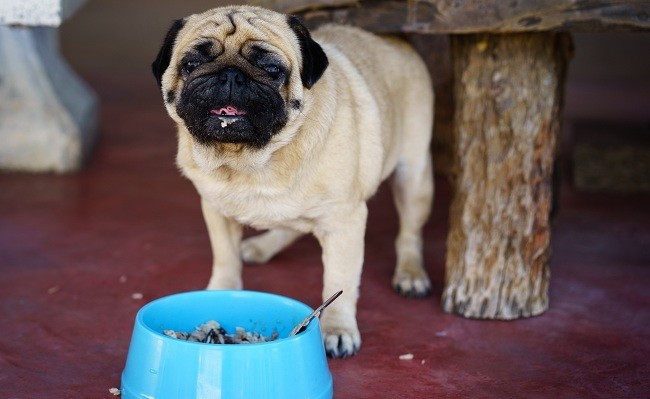Conscientious pet parents want to be certain their pooch is getting the best protein he or she can acquire. After all, especially with a dog that is pregnant, those proteins stored in her body will be passed down to her cute offspring. We want to give these pooches a fighting chance from the get-go.
Check out these proteins your doggie should avoid!
Study Shows Animal Meat Beats Plant-Based Protein By a Mile
According to many presumed experts in pet food, such as pet food manufacturers and pet food-related journals like PetfoodIndustry.com:
“The protein in pet foods can be supplied by animal sources, plant sources or a combination of the two. Common animal-based protein sources used in pet food include chicken, lamb, fish meal, and beef; while common plant-based protein sources include corn-gluten meal and soybean meal.”
Sadly, many veterinary nutritionists have also been trained to look only at amino acid profiles on paper.
While it's true that many commercial pet food formulas contain (species-inappropriate) plant-based protein sources, the above statement is misleading in that it suggests animal protein and plant protein are equivalent forms of nutrition for dogs and cats.
This is absolutely not true, and I'll add that of all the plant-based protein sources available, corn gluten meal and soybean meal are two that I would never recommend feeding to any pet.
Gluten is highly allergenic and causes gastrointestinal fermentation and other GI upsets. Corn in all forms is a high glycemic, poor quality, incomplete, biologically inappropriate protein source for pets. It's a cheap filler ingredient that is highly allergenic.
In addition, unless the label specifically states all ingredients in your pet's food are non-GMO, it's a sure bet any corn products in the formula are genetically modified and as such, are at high risk of aflatoxin contamination — in my opinion a grossly underestimated culprit of cancer and chronic disease in pet populations.
Soybeans and soybean-related products (including soybean meal) are considered a low-quality, incomplete protein well known to create food allergies in pets.
Soybeans contain large quantities of anti-nutrients (natural toxins), including enzyme inhibitors that interfere with the body's ability to digest protein. These substances can cause significant gastric upset, reduced protein digestion, and chronic deficiencies in amino acid uptake.
Additionally, soybeans are a food source of estrogen, something most spayed and neutered pets absolutely don't need more of.
I believe excess estrogens coming from adrenal gland over production, xenoestrogens in the environment, and food sources (like soy) are contributing to increased incidence of breast cancer and atypical Cushing's disease (adrenal disease), not to mention the thyroid epidemic occurring in pets.
A major pet food company conducted a study several years ago that examined how the type of protein fed to adult and senior dogs affected body composition (muscle versus fat). The dogs were fed diets with varying amounts of protein from chicken and corn gluten meal.
Dogs in one group were fed a diet of exclusively chicken; the rest were fed diets with decreasing amounts of chicken and increasing amounts of corn gluten meal.
Compared with the dogs fed 100 percent chicken, the other dogs had:
• A decrease in lean tissue
• An increase in body fat
• Decreased levels of blood proteins that are universal markers of a well-nourished body
There is more to be read about this interesting study, including how senior dogs and canine athletes react to being fed high animal protein diets. Head over to Healthy Pets to read more.
Basically, feed your dog good food, give him fresh water, exercise him and – most importantly – show him love. This, along with year inoculations will keep you both happy and healthy!











Frank Cagle
- Edit
Allen Keyes
Timi Fox
- Edit
How about liver?
Mary Craig
- Edit
Hey Bake, when do we get the donuts?